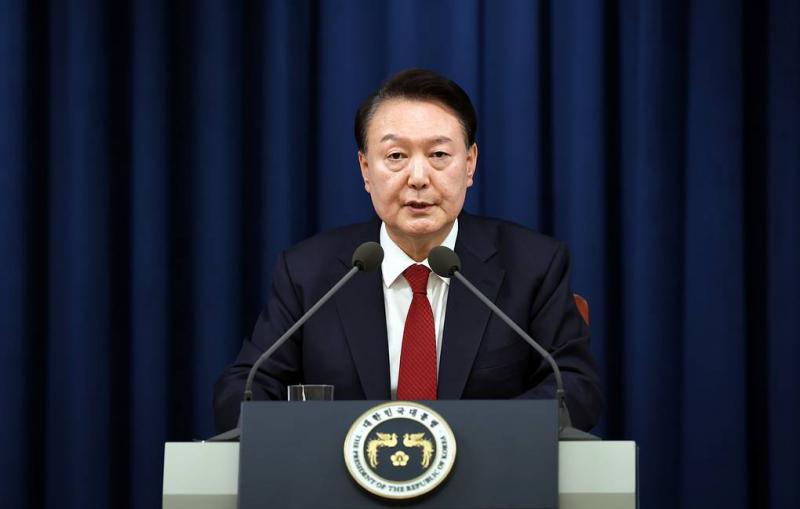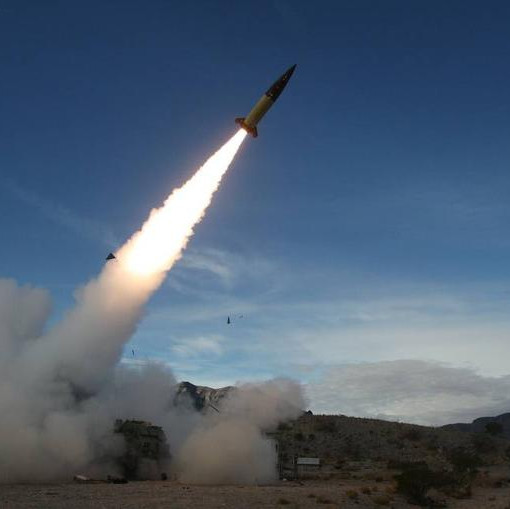
The South Korean parliament has impeached President Yoon Suk-yeol, who sought to impose a state of emergency in the country, dissolve the parliament and sharply restrict political freedoms earlier this month in order "to protect constitutional order". As a result of the parliament's decision, Yoon Suk-yeol’s presidential powers have been suspended, with Prime Minister Han Duck-soo becoming acting president. The Constitutional Court must approve the impeachment within 180 days. But an investigation has already been launched against Yoon based on accusations of an attempted coup, and it is highly unlikely that he will retain his political position or freedom. South Korea seems to be facing a sorely tough time of political instability, associated with both impeachment and an inevitable presidential election.
Last Saturday, the ruling People's Party thwarted the first impeachment attempt and boycotted the vote. But this time, 204 deputies out of 300 voted to remove Yoon, among them at least 12 deputies from the ruling party, and this decided the outcome of the parliamentary procedure requiring approval from two thirds of deputies. Throughout the current crisis, the party’s political line has fluctuated with maximum amplitude — from demands for Yoon's resignation to attempts to disrupt impeachment. But public opinion pressure — according to Friday polls by Gallup Korea, 75 percent of respondents supported Yoon’s impeachment — has played its part after all, although most party members still voted against.
After the parliamentary vote, Yoon, who was elected president in May 2022, said he would keep doing his best for the nation "until the very end." The disgraced president stressed: "I will never give up," but the prosecutors seem hardly concerned about his enthusiasm.
If the Constitutional Court approves the decision, Yoon will become the second president in South Korean history to be ousted by parliament after Park Geun-hye, who was impeached in 2017 for corruption and abuse of power. 20 days after the impeachment, she was arrested on bribery charges, and in a year eventually sentenced to 25 years in prison and a fine of 20 billion won. However, three years later, she was pardoned by then-President Moon Jae-in.
Yoon's impeachment was initiated by the leading opposition Democratic Party. Its leader Lee Jae-myung called his move "a crazy declaration of war against his people." The Democrats, as well as five other opposition parties, claim that the president violated the constitution when imposing martial law, which only lasted six hours from late December 3 to the early morning next day. The South Korean Constitution does allow the president to declare martial law, but only in case of war or severe emergency. The key reason that forced Yoon to take the suicidal step was obstruction of his political activities by opposition parties enjoying a parliamentary majority. The opposition did not let the state budget to be pushed through, and also carried out personnel appointments, including prosecutors supposed to consider corruption charges against both him and his beautiful wife suspected of illegally obtaining securities and expensive gifts that resembled bribes. Many observers claim that fear for the fate of his wife will bring the president to the edge of ruin.
December 11 saw head of the Corruption Investigation Office for High-ranking Officials Oh Dong-woon say that his department would seek detention or arrest of President Yoon.
"If the situation allows, we will attempt to make an emergency arrest or an arrest based on a court warrant," he told parliament. The statement came as the police attempted to search the presidential office as part of injury into alleged mutiny. But the administration prevented this, referring to some "official and military secrets." Nevertheless, the South Korean Ministry of Justice has imposed a ban on the president's travel abroad.
The police raided the offices of the National Police Agency, the National Guard, and the Seoul Police Department on December 11, arresting chief of the former Cho Ji-ho and the head of the latter Kim Bong-sik, who were providing law-enforcement support for presidential actions and trying to block the parliament building.
Defense Minister Kim Yong-hyun was also arrested on suspicion of masterminding the coup. Prosecutors allege that Kim ordered his deputies to send military personnel to the parliament' building and the National Election Commission. In prison, the former minister tried to commit suicide, but failed here as well.
The country was not only left without president or security forces, but also lacking an approved budget. What it does retain is a somewhat tarnished international reputation.
A government source in neighboring Japan told the Kyodo news agency that Yoon Suk Yeol’s administration may turn out a "lame duck." "We may go back to times when bilateral relations deteriorated," the source said.
However, as political chaos is hardly about to die away in Seoul, three states — Japan, the United States and South Korea — have urgently confirmed intent to keep working closely with North Korea. During a meeting in Tokyo, senior diplomats from the trio reiterated their "serious concerns" about Pyongyang’s increased military cooperation with Russia, as well as its nuclear and missile weaponry development programs.
The three have stressed the importance of cooperating "even in the face of various complicating situations," the Japanese Foreign Ministry said, referring to last week's events in South Korea.
At the same time, Japanese Prime Minister Shigeru Ishiba, who is actively promoting plans to strengthen military cooperation with the Republic of Korea as a snub to the PRC, had plans to visit Seoul in January. But now the visit is rather debatable.
Under Yoon Seok-yeol, the United States, Japan and South Korea have noticeably intensified defense cooperation. US nuclear submarines have returned to national ports. At the same time, he sought to weaken anti-Japanese sentiment in the country, which used to be Japan’s colony until 1945. In parallel, he pursued a tough course towards the DPRK, poetically dubbed the "cold wind". Now weather may change a little. The Democratic Party in Japan will most likely manage to push its candidate in the post-coup presidential election, and it has a course of "solar warmth" towards Pyongyang: dialogue, reduced tensions, humanitarian contacts.
But that’s later, and now the country has entered a period of extreme political uncertainty, in stark contrast to the stable DPRK.









